 Our World
Our World  Our World
Our World  Pop Culture
Pop Culture 10 Incredible Female Comic Book Artists
 Crime
Crime 10 Terrifying Serial Killers from Centuries Ago
 Technology
Technology 10 Hilariously Over-Engineered Solutions to Simple Problems
 Miscellaneous
Miscellaneous 10 Ironic News Stories Straight out of an Alanis Morissette Song
 Politics
Politics 10 Lesser-Known Far-Right Groups of the 21st Century
 History
History Ten Revealing Facts about Daily Domestic Life in the Old West
 Weird Stuff
Weird Stuff 10 Everyday Products Surprisingly Made by Inmates
 Movies and TV
Movies and TV 10 Actors Dragged out of Retirement for One Key Role
 Creepy
Creepy 10 Lesser-Known Shapeshifter Legends from Around the World
 Our World
Our World 10 Science Facts That Will Change How You Look at the World
 Pop Culture
Pop Culture 10 Incredible Female Comic Book Artists
 Crime
Crime 10 Terrifying Serial Killers from Centuries Ago
Who's Behind Listverse?

Jamie Frater
Head Editor
Jamie founded Listverse due to an insatiable desire to share fascinating, obscure, and bizarre facts. He has been a guest speaker on numerous national radio and television stations and is a five time published author.
More About Us Technology
Technology 10 Hilariously Over-Engineered Solutions to Simple Problems
 Miscellaneous
Miscellaneous 10 Ironic News Stories Straight out of an Alanis Morissette Song
 Politics
Politics 10 Lesser-Known Far-Right Groups of the 21st Century
 History
History Ten Revealing Facts about Daily Domestic Life in the Old West
 Weird Stuff
Weird Stuff 10 Everyday Products Surprisingly Made by Inmates
 Movies and TV
Movies and TV 10 Actors Dragged out of Retirement for One Key Role
 Creepy
Creepy 10 Lesser-Known Shapeshifter Legends from Around the World
10 Ways Prison Is Better Than Your Life
In some ways, prisoners actually get a better deal than you do. It’s not just the fashionable orange jumpsuits or the active sex life that is always so thoroughly enjoyed by one of the two inmates involved. In a lot of very important ways, we actually take much better care of prisoners than we do our own children.
SEE ALSO: 10 Secret Prisons Governments Are Hiding From Us
Not that we’d actually encourage you to get yourself thrown in jail, of course. Being in prison isn’t pleasant, and we certainly wouldn’t say that a life behind bars is a happy one.
We’re just saying that it’s better than your crappy life.
10 Prisoners Spend More Time Outside Than Children
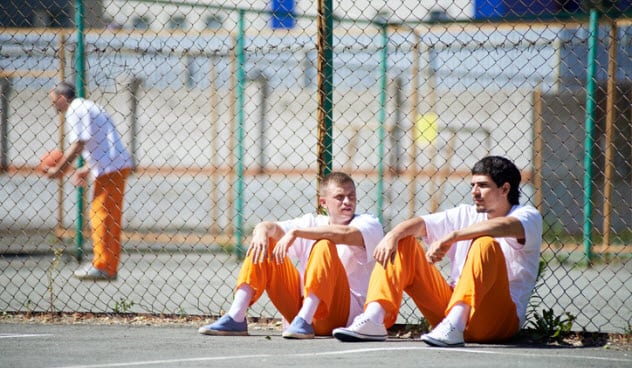
Most children spend less time outside than prisoners—and not by any small number. In the UK, 75 percent of kids get less playtime than criminals in penitentiaries. In other countries, it’s even worse. On an average day in the US, 50 percent of the kids just don’t go outside at all.
All of which is fine for our children. But when it comes to prisoners, that kind of neglect simply won’t do. Under UN guidelines, prisoners are guaranteed “at least one hour of suitable exercise in the open air daily”—something most kids never get.[1]
Plenty of prisons go beyond that, too. Prisoners in most American maximum-security prisons get a good two hours of outdoor time, which many inmates have been quoted as calling the “highlight” of their days.
We don’t yet take such good care of children, though. In the USA, there are no rules guaranteeing that kids get to go outside every day. On average, kids get about 20 minutes of recess a day—if they’re lucky. Because on some days, they just don’t go outside at all.
9 Prisons Serve Better Food Than Schools

Prisons aren’t exactly known for their fine cuisine. We certainly won’t suggest that anyone in prison is delighted to see a plate full of barely nutritious slop dumped onto their tray. We’re just saying that they’re probably grateful that they aren’t in a high school cafeteria.
According to Good magazine, an average prison meal includes one-half cup of vegetables, one serving of fruit, and 3–4 ounces of meat. An average school meal, on the hand, forces kids to choose either the vegetables or the fruit and gives them about half as much meat.[2]
Whether you’re eating in a prison or a school, the calorie count will be about the same. But the nutritional value is wildly different. Prisons will make sure you’re getting your four food groups, while schools tend to just pad all those calories with starches and carbohydrates.
If you really want a healthy meal, though, we’d recommend getting fast food. Under FDA rulings, places like McDonald’s are held to far more stringent standards of quality than the food we give children.
8 Prisons Treat The Elderly Better Than Nursing Homes
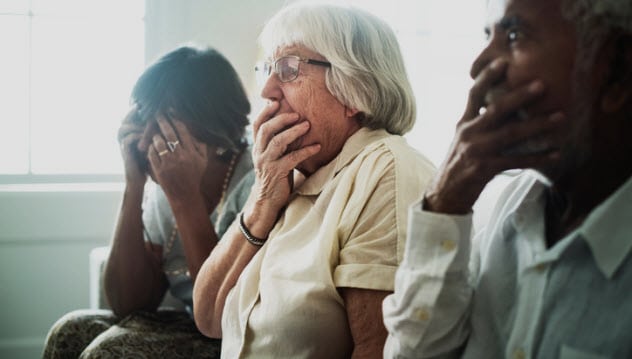
If you’re getting too old to take care of yourself, you’ve got two choices. You can sign up for a retirement home, which will likely cost about $6,000 a month. Or, if you’re on a budget, you can always just punch the next cop you see square in the jaw and dare him to throw you in prison.
It’s not just the cheaper option. It just might be the better option. Nursing homes in the UK are “probably worse than prison,” according to David Oliver, the guy in charge of nursing homes in the UK. And others have said the same thing about nursing homes in Canada and the US.[3]
Prisons are morally obligated to take care of the elderly. In nursing homes, elderly patients’ long-term illnesses are often ignored, but prisons are legally required to treat elderly patients for free. If an elderly person in prison has cancer, the doctors have no choice but to give him the best possible care, even if they have to shackle him to a hospital bed to do it.
In the end, it’s your choice. You can send grandma to another shady nursing home with a long history of elder abuse. Or, if you really love her, you can frame her for a bank robbery and get her the care she really deserves.
7 Prisoners Get Better Health Care
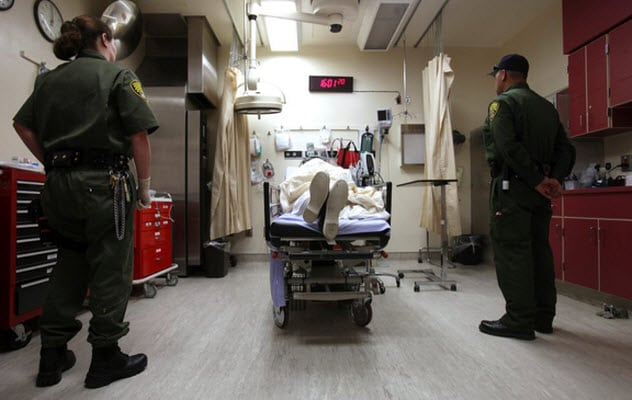
A South African reporter named Thabang Makwetla did an expose on the horrid conditions of Johannesburg’s prisons. He came out shocked, saying: “There is better medical facilities given from government in prison than out there.”
In a country where nearly 1 in 5 people are HIV-positive, Makwetla found that prison was actually the place people were getting the best care. Inmates were screened annually for HIV and got their results within two hours. As a result, 97 percent of prisoners with HIV were getting the treatment they needed.
And it’s not just South Africa. Prisons in the US usually pay doctors better than hospitals outside of prison, often resulting in better care. And in prison, the doctors actually have to help the patients, even if they don’t have money.
Though the US Constitution doesn’t guarantee citizens the right to health care, it does guarantee prisoners the right to health care. Under the Eighth Amendment, it is considered “cruel and unusual punishment” to deny a prisoner access to the medical, mental, and even dental care that they need, free of charge.[4]
Apparently, cruel and unusual punishment is fine as long as the victim hasn’t committed a crime. So if you really need to see a doctor, you’d better find a way to get yourself behind bars.
6 Prison Libraries Are Better Stocked Than Public Libraries
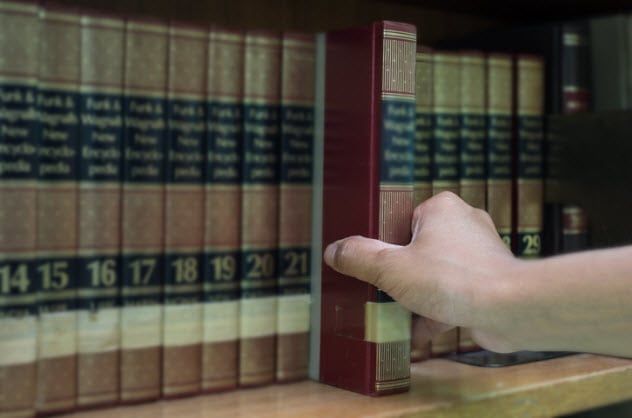
On the outside, a lot of libraries are starting to lose their funding. In some places, they’re even shutting down libraries altogether.
Fortunately, anyone looking for a good book can still find one by just making a quick trip through the penal system. Prisons in the UK are generally better stocked than public libraries, with some offering 16 books per inmate compared to an average of one book per customer in public libraries.[5]
Prison librarians really go the extra mile, too. They’re trained to be exceptionally helpful. They have to make sure that their inmates have access to legal forms, computers, and law books, and the librarians will personally make sure that everything the inmates write is in order before the documents are sent out.
There’s a reason so much funding goes into prison libraries. They keep prisoners out of trouble. It’s been repeatedly proven that people with access to libraries are less likely to break the law.
And that’s why we reserve the best libraries for people who have committed crimes. Because if they didn’t have libraries, they might commit crimes.
5 Prisoners Get Better Treatment For Mental Health
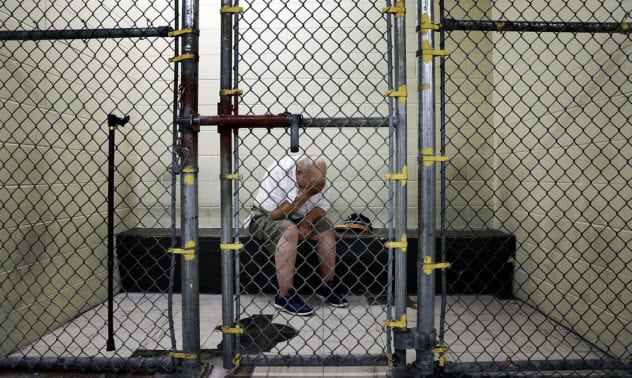
A report in New Zealand found that the District Health Board wasn’t paying psychologists quite as well as another board. A lot of the best mental health experts were flocking to the group that would pay them tens of thousands of dollars more each year: prisons.
To be fair, work is hard for a psychologist in a prison. They have to exclusively deal with dangerous, mentally unfit criminals. Outside of prison, plenty of people can and do get overlooked. In fact, in the US, there are 2.2 million severely mentally ill people who aren’t getting any kind of treatment. In prison, though, they have to take care of everyone.
Mental health care in prison is hardly perfect. A lot of prisoners don’t get the help they need, either because they’re afraid of the stigma of seeing a psychologist or because their problems are simply overlooked.
It’s still way better than it is outside, though. When inmates are released, it gets a lot harder for them to get treatment, and so, statistically, the rates of treatment tend to absolutely plummet.[6]
We have mental health care experts in prisons to treat whatever psychological illnesses might have made the inmates dangerous. But once they’re back out in public, they’re generally on their own.
4 The State Will Pay For Your College But Only If You Commit A Crime
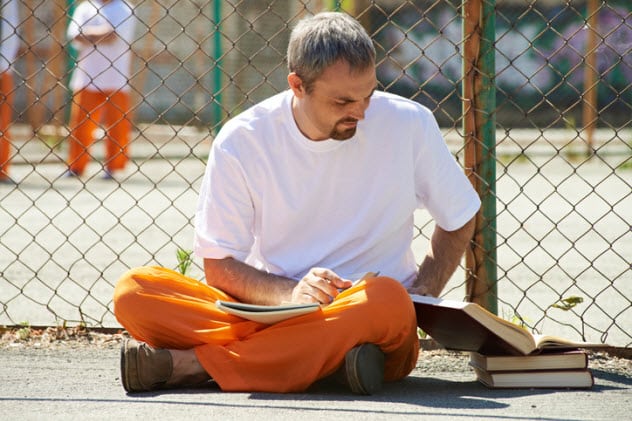
Seventeen prisons in New York offer free college educations. It’s called the “College-in-Prison Reentry Program,” a campaign that has invested $7.3 million so far with the goal of making sure that 2,500 inmates can get free college educations.
That might sound like a lot of cash, but it actually saves the state money. Every $1 spent on education, the creators claim, saves $4 in incarceration expenses because inmates who get an education are 43 percent less likely to go back to prison.
If you’re not in prison, the average tuition at New York University comes to $50,464 per year, not counting the expenses for food and rent for an apartment in New York City.
All of which are free in prison. So, technically speaking, getting yourself thrown in prison would actually be a cheaper way of going to college. For you, anyway. Your stay in prison would cost the state four times as much as your tuition, but until they work out that math, prison is the easiest path to a free education.[7]
3 Prison Is A Better Educational Environment Than Your Dorm
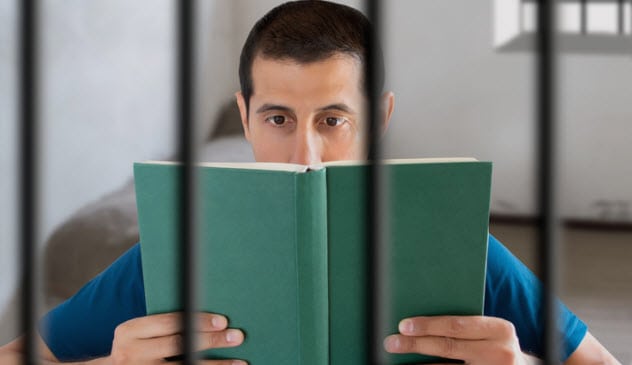
When Durham College decided to open one of their criminology courses to both prisoners and normal students, they discovered something surprising: The inmates were getting better grades.
In every respect, both groups had the same challenges. They used the same books, were taught the same lessons, and were graded with the same expectations. There was only one real difference: When class ended, the prisoners went to their jail cells and the students went to their dorms.
That, it’s believed, is why the prisoners did so well. Prison is just an absolutely fantastic educational environment.
While the students went home to friends, social media, and parties, the prisoners had nothing to do but their homework. They were in bland, distraction-free jail cells with no better way to pass the time than making sure their work is perfect.[8]
2 Criminals Are Treated Better Than Homeless People

When Bradley Grimes, a homeless man in Middlesbrough, was sent to court for loitering, he begged the judge to send him to jail.
“You don’t have to worry about anything in [jail],” Grimes explained. Outside, he was cold and constantly harassed by the police. But in jail, he knew, he’d be warm, have a roof over his head, and get three square meals a day.
He’s not the only person who’s done this. Another homeless man named Jamaine Makepeace once walked over to the county clerk’s office, smashed the windows, and then stood there, waiting for the police to take him away. He had been turned away from the homeless shelter, he explained, and couldn’t think of any other way to get out of the cold.
Getting a job wasn’t exactly an option for these men. According to one survey, 76 percent of ex-convicts describe finding a job after getting out of prison as either “difficult” or “nearly impossible.” After five years, two-thirds of all prisoners are still not making enough to make ends meet or don’t have a job at all.
For some, it’s just easier to go back to prison. As one homeless man who deliberately got himself arrested explained: “When you get right out of prison with $5 in your pocket and they drop you off in society, I don’t know what they really expect you to do.”[9]
1 Prisons Get Better Funding Than Schools
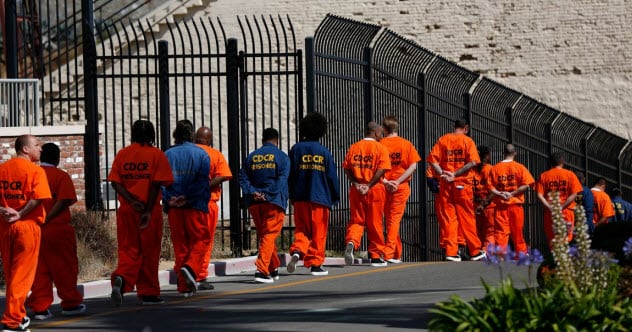
Maybe it shouldn’t be surprising that we take better care of prisoners than civilians. After all, we spend more money on them.
In California, housing a prisoner costs the government $75,560 per year—significantly more than a year of tuition at Harvard.[10] That’s an extreme case, but the national average to house an inmate is $55,000 a year. While not enough for a year at Harvard, it is more than enough money to send seven students to a mid-level college.
By contrast, the US spends an average of $10,500 annually on each grade school student. And that gap’s just going to get bigger. US spending on prisons has gone up at three times the rate of spending on schools over the last 33 years.
But that’s not to say that prison spending is going up at some crazy rate. Between 1979 and 2012, it increased by 324 percent, but that just matched the inflation rate of 330 percent. It’s just that spending on education has only matched one-third of inflation.
Fortunately, there’s a bright light at the end of the tunnel. As education gets worse, the odds that kids end up in jail will drastically increase—and there, at least, they’ll be treated like human beings.
Convinced that you want to go to prison? Before you knock over a convenience store, here’s some light reading to show you the other side: 10 Ways Prisons Torture Inmates In Modern Times and 10 Brutal Attacks On Prisoners By Prison Guards.








